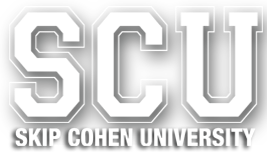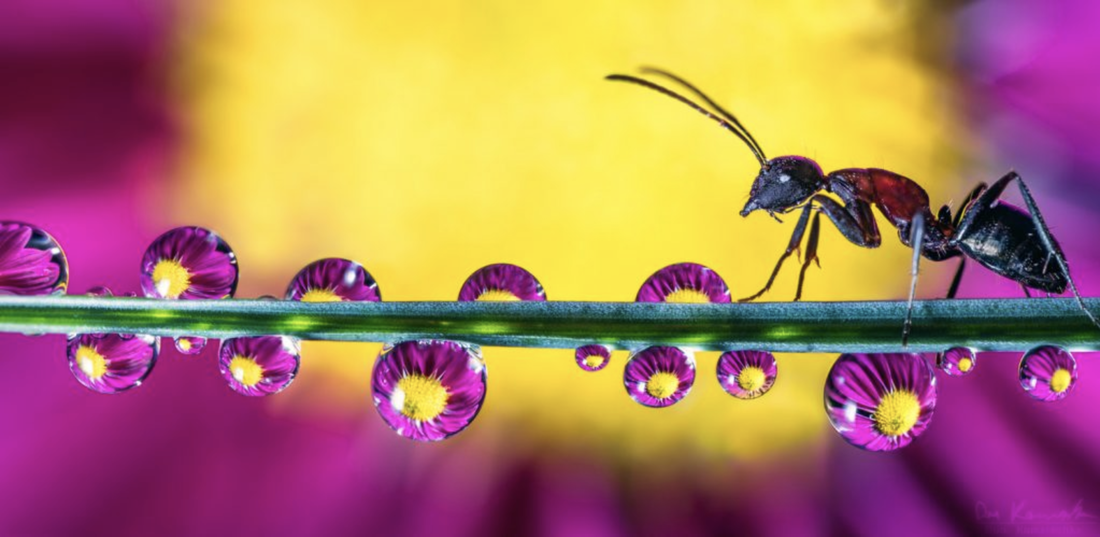|
by Skip Cohen
On February 6, I celebrated fifty years in imaging. My good buddy Don Komarechka wanted to have me on his podcast, Inside the Lens, which is part of Photo Geek Weekly. The topic? Lessons learned over my career. As things go, especially in this industry, one thing led to another, and Don planted the seed for a new SCU series, simply called "Lessons Learned." But let's the stage first. As I've written before: At a time when so many of my friends have slowed down, I love this business too much to give anything up. The busier I am, the more I love it. The more I realize how much there still is to learn outside my comfort zone, the more energy I seem to have to explore and navigate a new path. My intent with this new series is to share another chapter from my past each week...whether it was good or bad. I'm hoping you can learn from my mistakes so you can make new ones of your own! In 1970 my career in imaging kicked off with the need to find a job. Landing a job at Polaroid and coming into photography was purely an accident. I had no idea what I wanted to be when I grew up, and most of my friends today know that I still don't. And that brings me to one of my earliest lessons learned - the importance of finding mentors. I joined Polaroid because I needed a job and at $2.89/hour it was more than I'd ever made before. However, I completely underestimated the importance of stepping outside my comfort zone. One of the selling points of the company was their internal bidding system. Open jobs in the company were most often staffed from inside, giving all of us the opportunity to apply to other open positions. In my second year at Polaroid I put my name in for 63 different jobs, and was turned down due to lack of seniority. All of them were outside R&D where I just didn't want to be. I almost failed Chemistry in high school, so to be involved in chemistry on this level scared me to death. But here's the first lesson - no matter what our goals, we all need a mentor. For me, on the chemistry/engineering side of life it was Edgar Gutoff, a PhD Chemist who took me under his wings; taught me to use a slide rule, expand the parameters on his formulas, and within two years I actually understood what I was doing. Edgar watched over me, and while I didn't always understand the importance of the results of the experiments, I did understand and respect the process. You couldn't ask for a much better foundation in photography than actually understanding how to make emulsions - literally the light-sensitive coating on a sheet of film. Now take the concept of having a mentor and apply it to anything you do today that's new. The Google definition of "mentor" is an experienced and trusted adviser. Those three key words mean your mentors have more experience than you; have built a relationship of trust and as an adviser are willing to share that experience with you. We ALL need mentors, especially today at a time when every morning technology has moved the goal line. Just when we think we understand a particular process or technique things change. We need those trusted friends in our life to help us with our choices; watch our backs and guide us along the way while still giving us enough room to grow. And that's the perfect point to wrap this up with a comment about my friendship with Don Komarechka. Too often people think mentors need to be older than we are. I've got a lot of years on Don, but I consider him one of my mentors in technology and imaging. He's the mad-scientist of imaging, never accepting anybody telling him something can't be done. So, as a good friend, inspiration, and somebody I'm continually learning from, the word mentor certainly fits. Don Komarechka needs to be on your radar. I pulled together a few of my favorite images of his below. Click on any one of them to connect to the backstory on his website or on SCU. And to so many of you who commented and congratulated me on my fifty-year celebration, thank you. I honestly couldn't have done it without you, your support and guidance all along the way!
1 Comment
2/14/2020 05:40:44 pm
Skip, this conversation was so much fun, and it revealed a side of the industry that we never see. We see the press releases and presentations to the press, but what happens when things don't go perfectly? Obviously there is something to be learned, and by sharing these stories you help us all grow.
Reply
Your comment will be posted after it is approved.
Leave a Reply. |
Our Partners"Why?"Check out "Why?" one of the most popular features on the SCU Blog. It's a very simple concept - one image, one artist and one short sound bite. Each artist shares what makes the image one of their most favorite. We're over 100 artists featured since the project started. Click on the link above and you can scroll through all of the episodes to date.
Categories
All
|
© 2019 Skip Cohen University







 RSS Feed
RSS Feed












